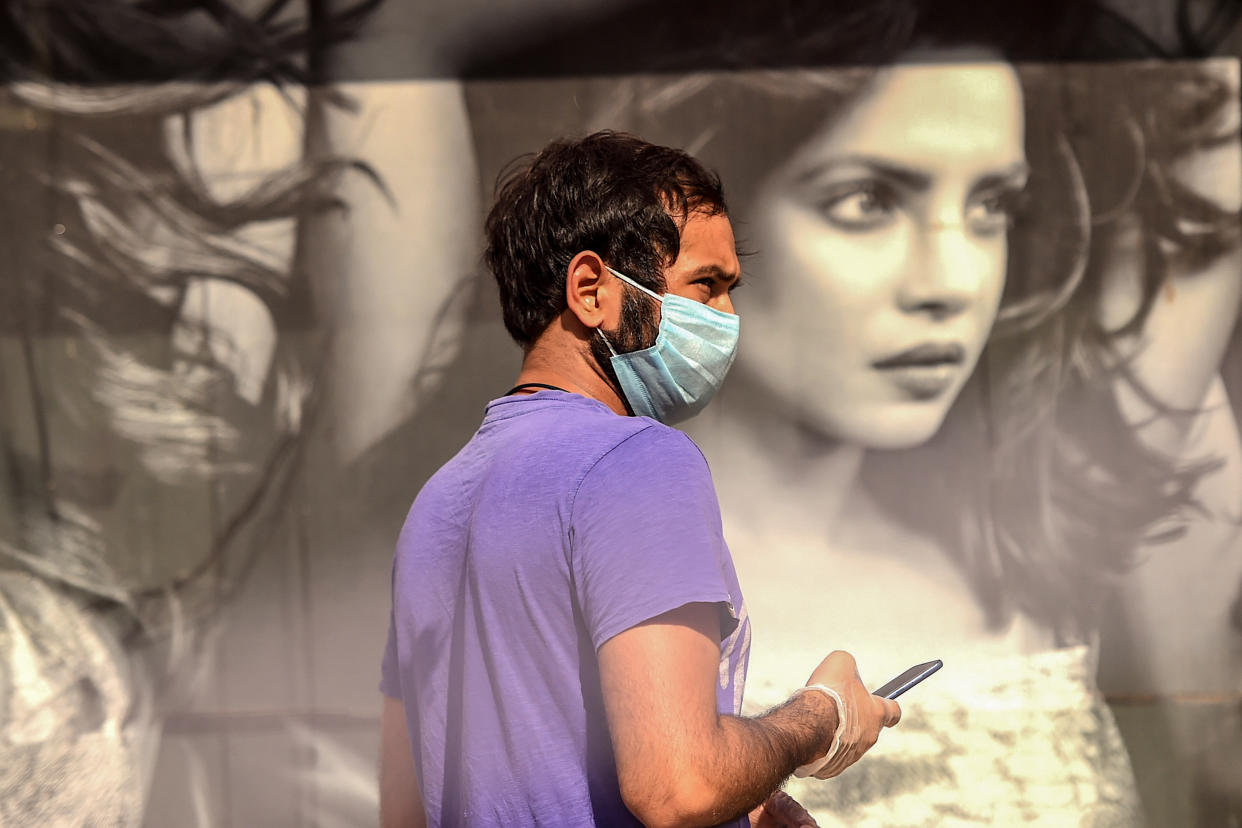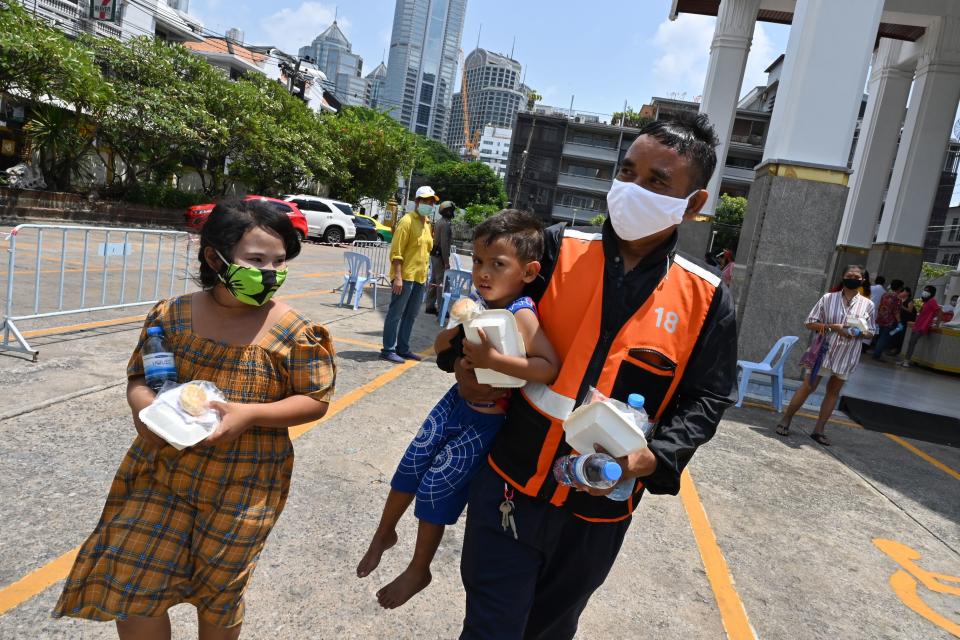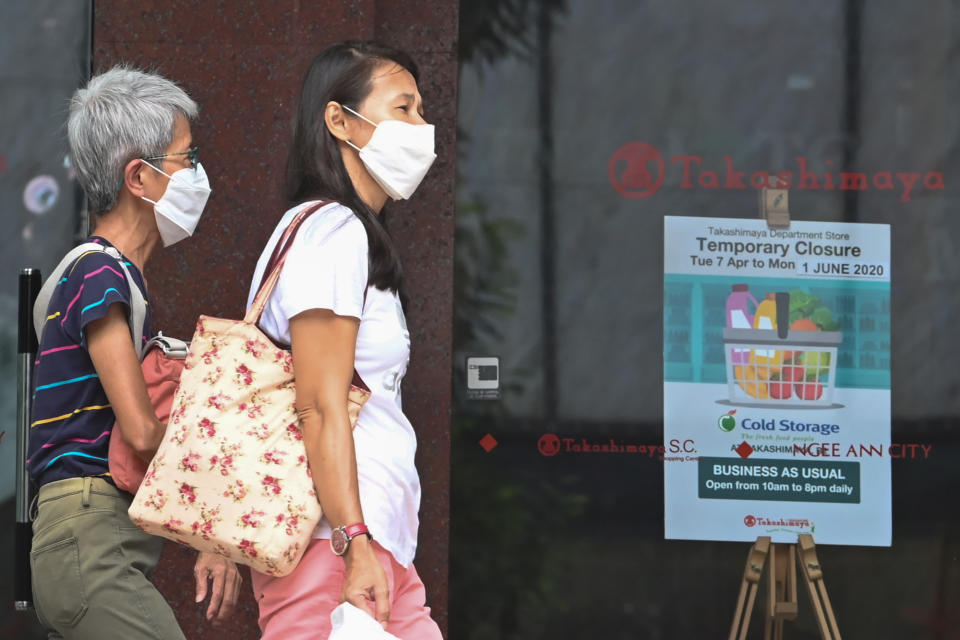Coronavirus: Why black, Asian and minority ethnic groups may be more at risk

People from black, Asian and minority ethnic (BAME) backgrounds appear to be more at risk of coronavirus complications.
The Intensive Care National Audit and Research Centre found over a third (34%) of more than 4,800 patients critically-ill with the infection identified as black, Asian or minority ethnic.
This is despite the 2011 census revealing only 14% of people in England and Wales are from ethnic minority backgrounds, the BBC reported.
Front-line workers also appear to be more vulnerable. Of 106 coronavirus-related fatalities among NHS staff up to 22 April, 63% were from a BAME background.
Public Health England has been commissioned to investigate the issue, with communities secretary Robert Jenrick claiming there appears to be a “disproportionate impact of the virus” on people from BAME backgrounds.
Early research suggests the coronavirus is mild in four out of five cases, however, it can trigger a respiratory disease called COVID-19.

Coronavirus: Why may BAME communities be more at risk of COVID-19?
The vast majority of deaths worldwide are occurring in the elderly or already ill.
One explanation could be that people from BAME backgrounds are more at risk of underlying health issues.
Latest coronavirus news, updates and advice
Live: Follow all the latest updates from the UK and around the world
Fact-checker: The number of COVID-19 cases in your local area
Explained: Symptoms, latest advice and how it compares to the flu
“Americans of African ancestry are much more likely to be overweight, obese or indeed morbidly obese than Caucasians”, said Dr Dyan Sellayah from the University of Reading.
Carrying dangerous amounts of weight has been identified as one of the main risk factors for dying with the coronavirus.
“This may be because as your infection progresses and the virus infects more and more cells, the demand for oxygen in the tissues is much higher for an obese individual than it is for a lean individual,” said Dr Sellayah.
“Eventually the obese body becomes overwhelmed by the lack of oxygen getting to the major organs.”
Obesity may also trigger a “dysfunctional immune system”, causing it to release excessive amounts of immune-fighting proteins that lead to hyper-inflammation.
“It is likely the immune response to the virus is therefore ineffective in obese individuals, which may explain why people from BAME backgrounds, who have higher incidence of obesity, are vulnerable to the virus,” said Dr Sellayah.
Obesity also makes individuals more prone to underlying health conditions, like type 2 diabetes and high blood pressure.
While this may come down to lifestyle, research suggests certain ethnicities are more likely to develop different co-morbidities.
“Irrespective of body weight status, some genetic mutations that predispose to heart disease have been shown to be more prevalent in African Americans than Caucasians,” said Dr Sellayah.
Although unrelated to the coronavirus, another example is prostate cancer, which is more common among men of African-Caribbean and African descent than Asian males.
Socio-economic factors may also make BAME communities more at risk.
“The demographic evidence is suggesting ethnic minorities live in larger family units, and potentially have professional and family lifestyles which make it harder to self-isolate or follow social distancing guidelines”, said Dr Sellayah.
For example, they may be more dependent on public transport, he added.
Data from the Office for National Statistics (ONS) revealed the most deprived areas of England had more than twice as many coronavirus-related deaths per 100,000 people as the most affluent regions between 1 March and 17 April.
“On average, deprived populations have a higher proportion of minority ethnic members,” said Professor Noel McCarthy from Warwick Medical School.
The ONS data was not broken down according to ethnicity.
Professor Gurch Randhawa from the University of Bedfordshire argued the government “failed to appreciate the UK’s diverse population” when it imposed the lockdown.
“As part of the lockdown strategy the government advised that places of worship close”, he said.
“The BAME community is on average more religious and religious centres play a much greater role in alleviating food poverty.”
Non-urgent GP appointments have also largely switched to “video and phone consultations”.
“The patients least able to adapt to these new methods are likely to be poorer than average and disproportionately BAME,” said Professor Randhawa.
Dr Sellayah stressed it is “early days” in our understanding of the coronavirus and nothing can be “conclusively stated”.
Nevertheless, “evidence suggests society-economic and genetic factors are responsible” for BAME communities being disproportionately affected, he added.

What is the coronavirus?
The coronavirus is one of seven strains of a virus class that are known to infect humans.
Others cause everything from the common cold to severe acute respiratory syndrome (Sars), which killed 774 people during its 2002/3 outbreak.
Since the outbreak was identified, more than 3.6 million cases have been confirmed worldwide, according to Johns Hopkins University.
Of these cases, over 1.2 million are known to have “recovered”.
Globally, the death toll has exceeded 257,400.
The coronavirus mainly spreads face to face via infected droplets expelled in a cough or sneeze.
There is also evidence it is transmitted in faeces and survives on surfaces.
Symptoms include fever, cough and slight breathlessness.
The coronavirus has no “set” treatment, with most patients naturally fighting off the infection.
Those requiring hospitalisation are given “supportive care”, like ventilation, while their immune system gets to work.
Officials urge people ward off the infection by regularly washing their hands and maintaining social distancing.




